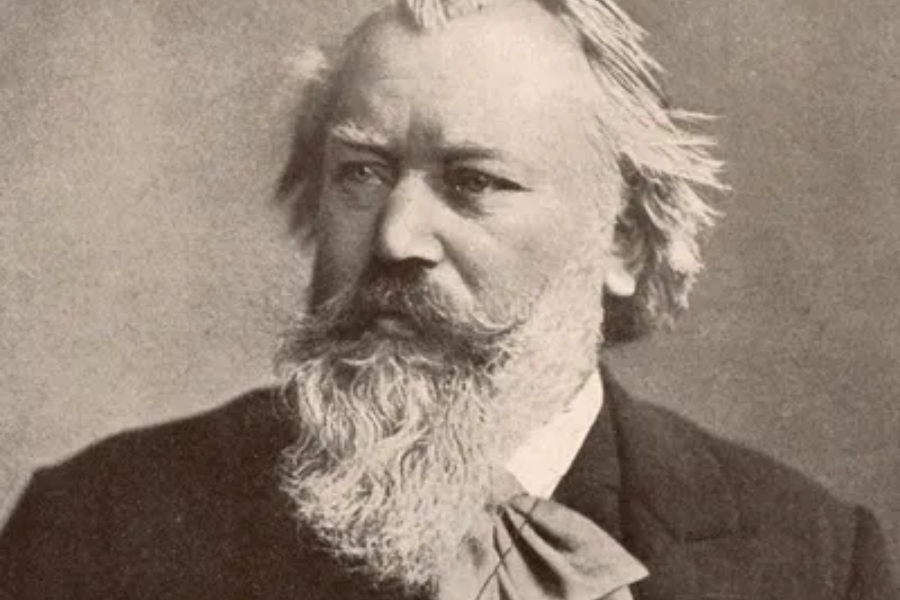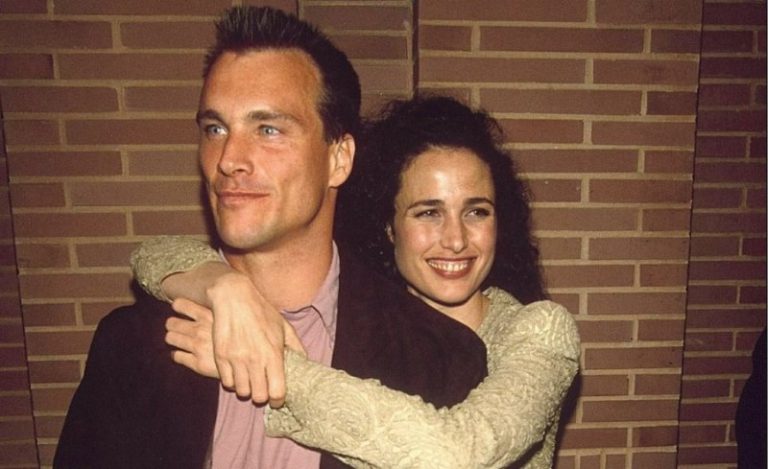Johannes Brahms’ Father: The Musical Influence on a Maestro
Johannes Brahms, a distinguished composer and virtuoso hailing from Germany, whose earthly presence graced the years between 1833 and 1897. This luminary musician etched an indelible imprint upon the tapestry of musical artistry. His vast oeuvre transcended conventional boundaries, encompassing symphonic opuses, concertos of unparalleled splendor, chamber music resonant with intimacy, choral compositions of transcendent beauty, and exquisite solo piano reveries. Nevertheless, Brahms’ claim to immortality is most fervently heralded for the creation of four symphonic marvels, a beguiling violin concerto, the profoundly moving German Requiem, and the effervescent Hungarian Dances.
Renowned for his meticulous artisanship, Brahms left no room for compromise in his sonic craftsmanship. His compositions were imbued with a profound wellspring of emotion, weaving a narrative of sentiments so rich and varied that they resembled a vivid tapestry of the human experience. What unequivocally set Brahms apart from his contemporaries was his unparalleled finesse in interweaving the classical conventions with the sensuous melodies and harmonies that typified the Romantic epoch. The result was a body of work that transcended temporal constraints, remaining an eternal testament to his genius and a source of continual fascination for discerning audiences through the epochs.
Johannes Brahms Father Details
Johannes Brahms’ paternal figure, recognized as Johann Jakob Brahms, and often denoted as Jakob Brahms, came into this world on the 27th day of January in the year 1806, hailing from Heide, a township nestled within the Duchy of Holstein, now situated in modern-day Germany. Jakob Brahms distinguished himself not merely as a double bass virtuoso but as a remarkably versatile maestro of multiple musical instruments.
The year 1830 witnessed his union with Johanna Henrika Christiane Nissen, a union from which three progeny were born into the Brahms lineage: Johann Jakob (born in 1831), Friedrich (born in 1833), and the youngest of the trio, Johannes (also born in 1833). Regrettably, their eldest scion, Johann Jakob, departed this world in his nascent years, an irreparable loss that cast a somber shadow upon the Brahms household.
From the earliest chapters of their chronicle, Johann Jakob Brahms assumed a pivotal role in nurturing the burgeoning musical prowess of Johannes. He bestowed upon his offspring the gift of musical tutelage, wholeheartedly fostering his evolution as a virtuoso pianist and composer. Johannes Brahms repeatedly acknowledged the seminal role his progenitor played in his formative years, extending gratitude for the early initiation into the realm of music and the subsequent incandescence of his artistic fervor.
In a melancholic twist of fate, Johann Jakob Brahms bid adieu to this world in the year 1872, a period during which Johannes had already carved a niche as an illustrious and established composer. In the throes of his bereavement, Johannes Brahms dedicated several of his compositions to the cherished memory of his paternal figure. Jakob Brahms, instrumental in shepherding his offspring, Johannes Brahms, towards his eventual manifestation as a musical prodigy, who the world came to revere and venerate.
Johannes Brahms Early Life
The brilliant composer Johannes Brahms entered this world on May 7, 1833, in the thriving German city of Hamburg. While his mother, Johanna Henrika Christiane Nissen, was not only a gifted seamstress but also possessed a wonderful aptitude for music, his father, Johann Jakob Brahms, added his musical flair as a double bass musician with the Hamburg Philharmonic Society.
From a very early age, young Brahms showed a deep connection with music. After receiving initial instruction from his father and later from several local musicians, he dove headfirst into the worlds of piano playing and composing. His musical ability was so remarkable that, shockingly, at the age of 10, he performed for an audience in Hamburg.
The real turning point, however, occurred in 1853 when Brahms met Joseph Joachim, a Hungarian violin virtuoso.He met the renowned pianist and composer Robert Schumann as a result of this interaction. Recognizing the extraordinary talent that Brahms possessed, Schumann penned a pivotal article about him in the influential publication, Neue Zeitschrift für Musik. This endorsement from Schumann proved to be a game-changer, thrusting Brahms into the spotlight as a composer and opening doors to a series of commissions and performances that would shape his illustrious career.
Johannes Brahms Education and Career
Johannes Brahms trod a unique path in his musical journey, one that bypassed the formal confines of a conservatory. He gleaned the basics from his father and local mentors, but a substantial part of his musical expertise was honed through self-study. Together with the Hungarian violinist Ede Reményi, he embarked on a magnificent concert tour in 1853, traveling to towns in Germany, Austria, and Hungary. This tour proved to be a turning point in his career, giving him the exposure he required and solidifying his status as a respected musician.
Brahms’ true breakthrough came when he received a commission from the publisher Julius Schuberth to compose a piano sonata. This piece, along with his brilliant Variations on a Theme by Robert Schumann, significantly contributed to his ascent as a rising star in the classical music world.
While in Hamburg, Brahms took charge of a women’s choir, an experience that enriched his understanding of choral music. Simultaneously, he wore the hats of a pianist and conductor, embarking on extensive tours across Germany and Austria.
In 1882, he assumed the role of conductor at the Singakademie in Vienna, leading a chorus comprising over 200 singers. It was during this period that he composed his renowned German Requiem and his First Symphony.
Brahms’ brilliance was recognized, as evidenced by the honorary doctorates he obtained from illustrious universities like Cambridge and Breslau. At the Prussian Academy of Arts and Sciences, he also made an enduring impression. Despite his extraordinary success, Brahms maintained his modest demeanor and shied away from the spotlight. In terms of both composition and performance, his death in 1897 signaled the end of an era, leaving behind a legacy that still fascinates listeners today.
Impressing other musicians
In the year 1850, Johannes Brahms experienced a pivotal moment when he crossed paths with the Hungarian violinist, Eduard Reményi. This encounter would profoundly shape his musical journey. Reményi introduced Brahms to the vibrant world of gypsy dance songs, leaving an enduring imprint on his future compositions. Over the following years, Brahms embarked on a creative adventure, crafting numerous piano pieces that showcased his growing talent.
In 1853, Brahms and Reményi embarked on a successful concert tour that would change their lives. Along the way, they had the fortune of meeting Joseph Joachim, a pivotal figure in Brahms’ career. Joachim introduced them to the legendary composer Franz Liszt in Weimar, Germany. Liszt, a giant in the world of music, welcomed them and was deeply captivated by Brahms’ music. Liszt sought to include Brahms in his circle of composers, but Brahms respectfully declined, feeling that their styles didn’t quite align. In a letter to Robert Schumann, Joachim showered praise upon Brahms, recognizing his exceptional talent.
Brahms’ path then led him to a meeting with Robert Schumann and Clara in 1853. Schumann’s affection for the young composer was boundless. He penned glowing articles about Brahms and even played a role in publishing some of his early works. In 1854, Brahms composed notable pieces, including the Piano Trio No. 1, Ballades, and Variations on a Schumann Theme.
A significant turning point occurred when Brahms was summoned to Düsseldorf, Germany, where Schumann, in the midst of a breakdown, had attempted suicide. Brahms stood by the side of the Schumanns, offering unwavering support to Clara even after Robert Schumann’s tragic passing in 1856. To make ends meet, Brahms turned to private piano instruction while occasionally embarking on concert tours. It was during two such concerts, featuring the singer Julius Stockhausen, that Brahms solidified his reputation as a celebrated composer of songs, marking yet another chapter in his remarkable journey.
Late masterpieces
In 1872, tragedy struck Johannes Brahms when his father passed away. Before assuming the position as artistic director for the Gesellschaft der Musikfreunde, better known as the Friends of Music, in Vienna, he took a temporary break. His creative energy remained in full bloom at this time, and he gave his all to each new masterpiece he wrote. He composed tirelessly, embarked on concert tours primarily to refine his own works, and savored extended periods of leisure. With financial stability on his side, Brahms was now free to follow his own creative desires. But in 1875, he made the decision to step down because he found the demands of running the Gesellschaft der Musikfreunde to be too great.
He then spent the summer composing Symphony No. 1 and getting Symphony No. 2 ready. Brahms created two orchestral concertos in response to receiving a degree from Breslau University in 1880. It was around this time that Italy cast its spell on Brahms, and he would return to this enchanting place often for the remainder of his life. For Brahms, vacations were synonymous with composing, and this period saw the birth of symphonies, intricate concertos for piano and violin, and a plethora of other compositions and publications.
Much of the global acclaim that Brahms’s orchestral works received was due to the tireless efforts of their exceptional interpreter, Hans von Bülow. Bülow, who had shifted his allegiance from the Liszt-Wagner faction to Brahms, invested tremendous energy into ensuring that Brahms’s compositions received impeccably executed performances.
In his sixties, Brahms experienced a swift aging process, accompanied by a noticeable decrease in his creative output. He often hinted at having reached the pinnacle of his creative endeavors. Nonetheless, the works from this final phase of his life exude a profound grandeur and focus. His final published pieces, the Vier ernste Gesänge (Four Serious Songs), are noteworthy because they serve as the pinnacle of his successful career.
Brahms’s health deteriorated further upon receiving news of Clara Schumann’s passing in 1896. He died on April 3, 1897, from liver cancer. His final resting place is alongside luminaries such as Beethoven and Franz Schubert (1797–1828), and he is revered by Vienna and the entire global musical community.
Family
The father of Johannes Brahms was born into a family of carpenters and traders, but he decided to follow a different road that brought him into the music industry. He spent three years as Theodor Muller’s apprentice before leaving for Hamburg at the age of 19 to begin his musical career. With proficiency across a range of instruments, he particularly shone as a double bassist and horn player. Initially, he served as a cornet player in the city’s guard before earning a coveted spot in the esteemed Hamburg Philharmonic Orchestra as a double bassist.
At the age of 24, he made a significant choice in his personal life by marrying Johanna Henrika Christiane Nissen, a skilled seamstress who would later take on work as a domestic servant. She hailed from Hamburg, and their paths crossed when Jakob rented a room from Henrika’s parents. Despite difficulties at the beginning of their marriage, they persisted. A year after their romance ended in 1864, Brahms’ mother sadly passed away. In 1866, Jakob found love again and remarried, a union that had the wholehearted approval of his son Johannes Brahms.
Retirement
At the age of 57 in 1890, Brahms made a solemn declaration of retirement from the world of composing. However, he couldn’t quite stick to that resolution. In reality, he continued to weave musical wonders, crafting several notable pieces, with a particular focus on the clarinet. This late burst of creativity was largely inspired by his close friendship with the exceptionally talented clarinetist, Richard Mühlfeld.
Legacy
Johannes Brahms emerges as a colossal and enduring presence within the domain of classical music, leaving behind an inheritance of unparalleled import. He is exalted as one of the preeminent artisans of the Romantic epoch, and his opuses persist in occupying a special niche within the affections of music connoisseurs on a global scale.
Brahms demarcated himself through his fastidious scrutiny of minutiae, his capacity to conjure profound emotional profundity, and his extraordinary expertise in seamlessly amalgamating classical frameworks with the opulent harmonies and melodious cadences of the Romantic era. A virtuoso in the realm of counterpoint and orchestration, his creations garnered veneration for their labyrinthine intricacies and opulent tapestries.
Brahms’ sway extended extensively, imprinting an indelible impression on composers the likes of Gustav Mahler, Arnold Schoenberg, and Sergei Rachmaninoff. Presently, orchestras, chamber ensembles, and soloists from every nook and cranny of the world persist in respiring life into Brahms’ musical oeuvre. His symphonies, concertos, and choral compositions stand among the most cherished and recurrently executed works in the classical music canon. Brahms functioned as an inexhaustible font of inspiration for musicians and aficionados of music alike, owing to his multilayered proficiencies as a composer, pianist, and conductor.
People Also Ask (FAQs)
- Who was Johannes Brahms’ father?
Johannes Brahms’ father was Johann Jakob Brahms. He played double bass in the Hamburg Philharmonic.
- How did Johannes Brahms’ father influence his musical career?
Johann Jakob Brahms, Johannes’ father, helped him develop musical talent. He exposed him to music, taught him piano and composition, and encouraged his progress.
- Did Johannes Brahms’ father have a background in music?
Johann Jakob Brahms, Johannes Brahms’ father, was a carpenter and businessman who became a musician. He played many instruments, especially double bass and horn.
- What impact did Johannes Brahms’ father’s passing have on him?
Johannes Brahms was deeply affected by his father’s 1872 death. Johannes Brahms dedicated several of his compositions to his father in sadness and attributed him with introducing him to music and creating.
- Did Johannes Brahms’ father play a role in his early public performances?
Yes, Johannes Brahms’ father played a role in his early public performances. He provided initial guidance and instruction, and at the age of 10, Brahms performed in public in Hamburg, showcasing his musical talent.
- How did Johannes Brahms’ father’s musical background contribute to his own musical development?
Johannes Brahms’ father’s musical background provided him with early exposure to music and a solid foundation in musical fundamentals. This upbringing played a crucial role in nurturing Brahms’ innate musical talent.
Final Words
In the realm of classical music, Johannes Brahms left an enduring imprint that lingers in the collective memory. His labyrinthine compositions, imbued with profound emotional gravitas, and his seamless amalgamation of classical structural intricacies with lyrical exuberance have, indeed, ensnared the rapt attention of global audiences.
Johann Jakob Brahms, his paternal progenitor, played an indispensable role as the compass guiding Johannes along a melodious odyssey, one that would indelibly mold his life. Brahms’ sojourn, commencing in Hamburg and culminating in the zenith of his career, was characterized by unswerving commitment and an ardent infatuation with the auditory arts.
When we reflect upon Johannes Brahms, our ruminations inexorably gravitate toward the individuals who propped him up, along with the extraordinary legacy he left in his wake. His symphonic opuses, concertos, and ageless magnum opuses persist in their capacity to engender inspiration in successive generations of musicians and aficionados of musical artistry.
Brahms’ melodious reveries act as a veritable vessel, transporting contemporary auditors to a realm of unparalleled aesthetic splendor and emotional profundity. His inventive genius persists as an eternal font of inspiration, serving as an eternal testament to the potent, soul-stirring capabilities inherent in the medium of music.
Johannes Brahms, a titan enshrined within the annals of musical history, emblematically illustrates that boundless potential can be unearthed through the crucibles of ardor, unyielding commitment, and the steadfast patronage of those who espouse our dreams. His legacy reverberates perpetually, akin to a timeless symphony resonating eternally within the chambers of our hearts.







